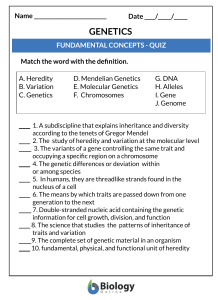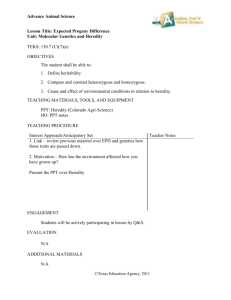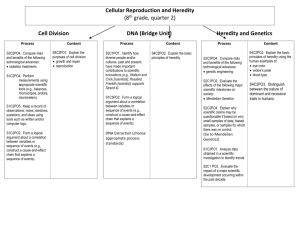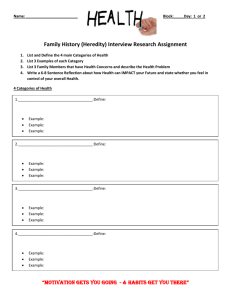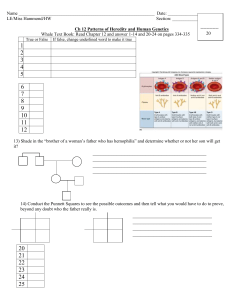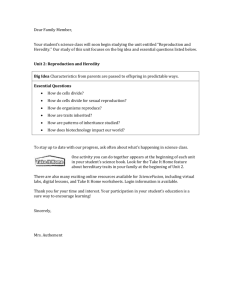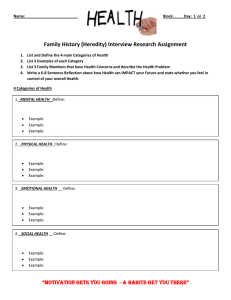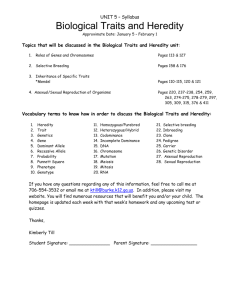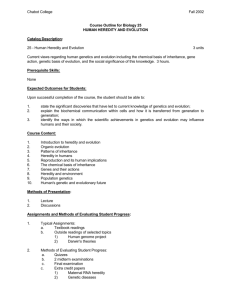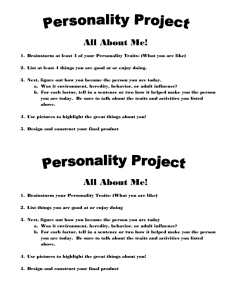Child development-Early stages Through Age 12
advertisement
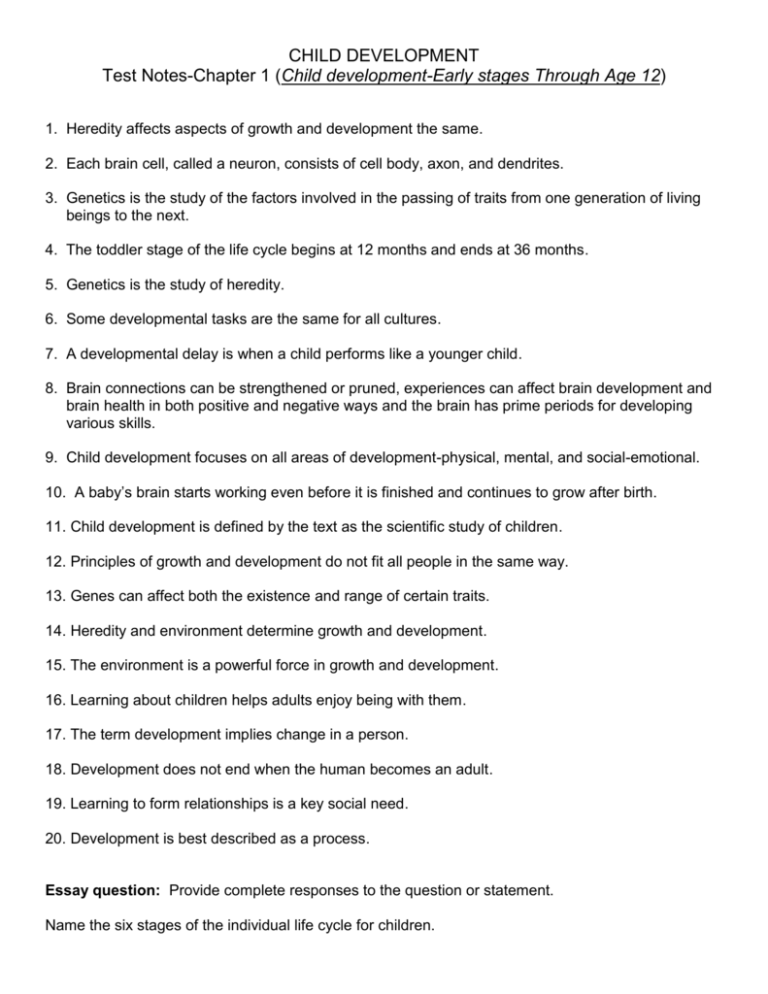
CHILD DEVELOPMENT Test Notes-Chapter 1 (Child development-Early stages Through Age 12) 1. Heredity affects aspects of growth and development the same. 2. Each brain cell, called a neuron, consists of cell body, axon, and dendrites. 3. Genetics is the study of the factors involved in the passing of traits from one generation of living beings to the next. 4. The toddler stage of the life cycle begins at 12 months and ends at 36 months. 5. Genetics is the study of heredity. 6. Some developmental tasks are the same for all cultures. 7. A developmental delay is when a child performs like a younger child. 8. Brain connections can be strengthened or pruned, experiences can affect brain development and brain health in both positive and negative ways and the brain has prime periods for developing various skills. 9. Child development focuses on all areas of development-physical, mental, and social-emotional. 10. A baby’s brain starts working even before it is finished and continues to grow after birth. 11. Child development is defined by the text as the scientific study of children. 12. Principles of growth and development do not fit all people in the same way. 13. Genes can affect both the existence and range of certain traits. 14. Heredity and environment determine growth and development. 15. The environment is a powerful force in growth and development. 16. Learning about children helps adults enjoy being with them. 17. The term development implies change in a person. 18. Development does not end when the human becomes an adult. 19. Learning to form relationships is a key social need. 20. Development is best described as a process. Essay question: Provide complete responses to the question or statement. Name the six stages of the individual life cycle for children.

